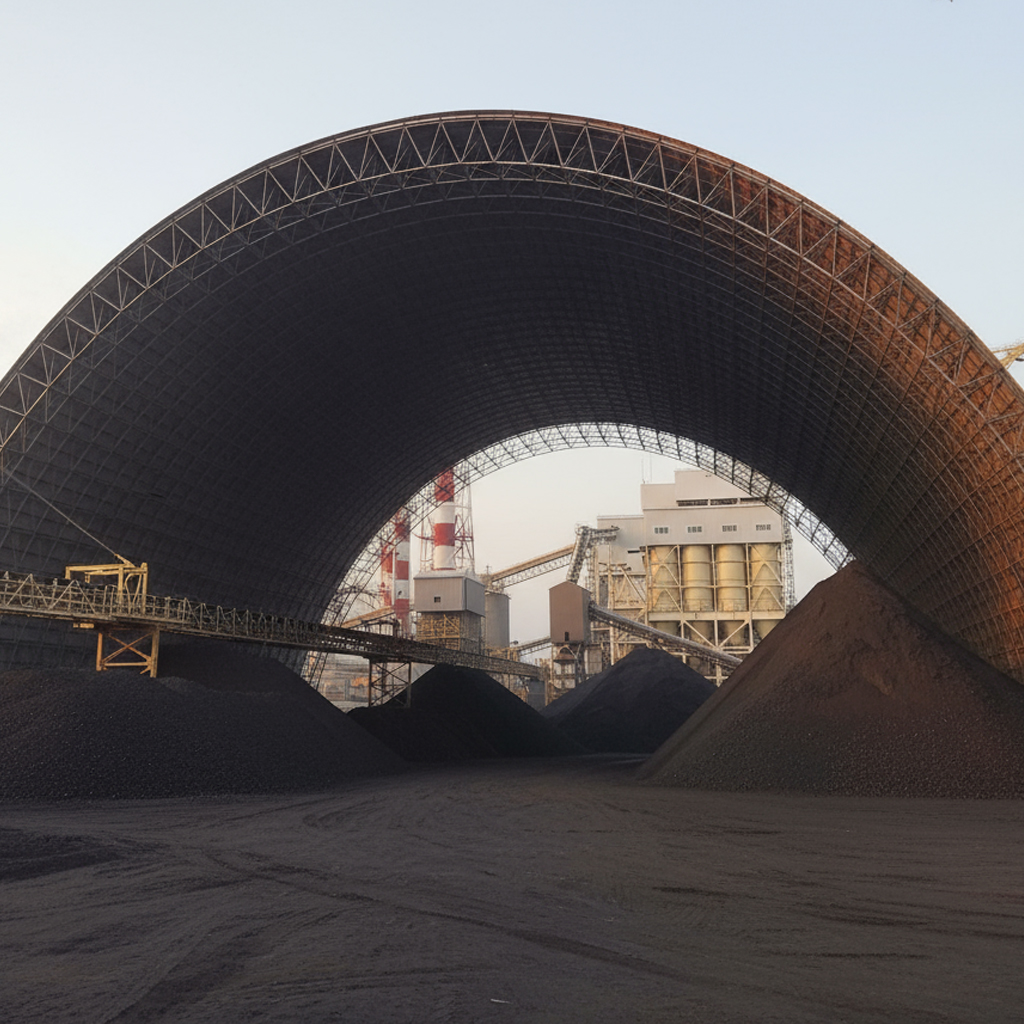Gypsum Storage:
In cement producing plants, a widely used fine-grained calcium sulphate (CaSo4) material used as binding agent is “gypsum”. In cement plants, gypsum is used as one of the prime materials to provide premium performance and superior aesthetics for a wide range of occupancies. Such material shall be stored in properly constructed sheds ensuring its storage without deterioration and without contact to ground and structural members, without exposure to moisture and heat, and away from direct sun.
Moisture / Caking Problem in Gypsum Storage
Materials required in construction operations shall be stored, and handled in a manner to prevent deterioration and damage to the materials, ensure safety of workmen in handling operations.
In context of gypsum storage in cement industry, Moisture control is one of the complex handling issues. Moisture ingress in gypsum stockpiles should be controlled not only to promote the wellbeing of occupants but also the sustainability of a building to be constructed. Moisture Problem in gypsum storage not only linked to potential health problems, including increased risk of respiratory conditions resulting from exposure to mold, microbial agents, dust mites, but also can negatively impact durability, maintenance, aesthetics, and serviceability.
Moisture Control Strategies for Gypsum Storage:
Many factors must be considered to ensure no moisture in gypsum stockpiles.
- The foremost step regarding moisture control strategies for gypsum storage is to address all potential sources of water intrusion and then to offer all viable solutions for its prevention from moisture.
- Materials subject to loss of quality through moisture should be kept within impermeable wrapping, if not used within a reasonable period.
- Integrating the air and /or vapor retarder with the penetrations helps to restrict air and vapor flow, resulting in reduced moisture problems. Air control highly need to have structural continuity, while vapor control can be accomplished using a variety of other materials.
- Dehumidification involves the withdrawal of moisture from the air to lower its relative humidity. This generally becomes necessary during wet monsoon months to facilitate production processes and prolonging storage life of gypsum and other additives in bulk.
- The roofing system is a vital part of the exterior weatherproofing envelope and is comprised of a multitude of steel materials and components. It is crucial that ceiling and penetration of roofing systems be properly designed & installed to provide better performance. Therefore, Gypsum stockpiles should be stored at the work site in a building or a storage shed which is dry, leak proof and moisture proof.
Gypsum storage sheds engineered by Hindustan Alcox Limited is the most advisable choice to cover gypsum stockpile for the adverse environment conditions. We, at Hindustan Alcox Limited provide storage solution for gypsum with long span steel structure having span of up to 150 m & height of up to 40 m. Besides barrel vault structure, Gypsum dome also provides an opportunity to achieve good plant efficiency by maximum space utilization and hasty operational works.



